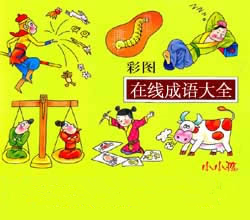英文读后感之鲁宾孙漂流记读后感
It seemed to be such a coincidence that the night after I finished reading The Life And Adventures Of Robinson Crusoe, I was to dine in a restaurant distinctly related to the book itself. This restaurant was no other than the famous American-styled “Friday’s.” The reason for mentioning this restaurant is quite straightforward to all the gentlemen, ladies and children who have read the novel and enjoyed it, which is the fact that this restaurant was, most likely, named after the American Native in Robinson Crusoe, called Friday. This restaurant offers very exceptional service, for instance when the waitresses are asked to order dishes they kneel rather than stand, which, unlike the other restaurants I have been to, makes it easier for the customers to hear them speak. Moreover, Friday’s friendly services to the customers help them to make better choices when ordering dishes. I remembered when I went to Friday’s last time; the waitress kindly described the items on the menu with precise details. It turned out that the combo I initially wanted was designed to be shared among a large group, not to be eaten by one person. I think this restaurant shows many commendable features similar to that of Friday.
Friday brought emotional warmth to the people around him with his appealing personality. I think it was this personality that affected Crusoe and made him say that he loved Friday when Crusoe didn’t express love for his parents, brothers, sisters, or even his wife. “When he espied me, he came running to me, laying himself down again upon the ground, with all the possible signs of an humble, thankful disposition, making many antic gestures to show it…to let me know how he would serve me as long as he lived.” This was what Friday did after Crusoe had rescued him from the two savages chasing him. It was easy for me to see why Crusoe had loved Friday. After sometime, Crusoe and Friday were to rescue Friday’s father. When Friday reunited with his father, the scene was easy to move anyone: “It would have moved anyone to tears to have seen how Friday kissed him, embraced him, hugged him, cried, laughed, halloed, jumped about, danced, sung; and then sung and jumped about again, like a distracted creature. It was a good while before I could make him speak to me.” This is my favourite chapter in the whole book. It is hard to see why Friday is an ex-savage when he can have personalities more praiseworthy than many civilized people, viz. Crusoe himself. “When he (Friday) went to him (Friday’s father), he would sit down by him, open his breast, and hold his father’s head close to his bosom, half an hour together, to nourish it; then he took his arms and ankles, which were numbed and stiff with the binding, and rubbed them with his hands.” Furthermore, Friday’s expression of loyalty in asking Crusoe to kill him rather than leave him is more heartfelt than anything Crusoe ever says or does.
Crusoe, on the absolute contrary, seems incapable of deep feelings, as shown by his account of leaving his family—he never shows any emotions. After a moving lecture from Robinson’s father about his future, he still decided to follow his own wandering ambition. Careless was he about the wishes of his parents to keep him alive and prosperous, as he was the only child left in the family. When he came back from the island which he had lived on for twenty eight years, he found that it had been too late to tell his parents that he was still alive, but yet again he did not feel sorry for them; he also did not feel sorry for the two people who had to live in misery for nearly thirty years under the allusion all of their sons were dead. He had the same feelings for his wife: when he was married, he said it was “not either to my disadvantage or dissatisfaction”, implying that it was also neither to his advantage nor his satisfaction. Moreover, after his wife died, Robinson did not think of looking after the three children they had, but went back to the island, which he had lived on for twenty-eight years. It was on this trip which Robinson Crusoe revisited “His Island” as he called it. I feel that Robinson’s indifference to his family is almost emotionally cruel.
共2页,当前第1页1 相关作文: 小闹钟、我的妈妈是傻瓜、救小鸟、挖笋、照片里的故事、一件衣服一片情、秋妹妹、做花灯、小学作文爸爸的生日、一次大的进步热门作文成语素材
- 哀感顽艳 原意是指内容凄切,文辞华丽,使愚笨和聪慧的人同样受感动。后多用来指艳情的小说、戏曲、电影中的感人情节。
- 匪夷所思 匪:不是;夷:平常。指言谈行动离奇古怪,不是一般人根据常情所能想象的。
- 风不鸣条 和风轻拂,树枝不发出声响。比喻社会安定。
- 岸谷之变 比喻政治上的重大变化。
- 分茅裂土 原指古代帝王分封诸侯时举行的仪式。后称分封诸侯。
- 飞沙走砾 沙:沙土;砾:小石块。沙土飞扬,小石块滚动。形容风势很猛。
- 百发百中 形容射箭或打枪准确,每次都命中目标。也比喻做事有充分把握。
- 本性难移 移:改变。本质难于改变。
- 鼻息如雷 鼻息:鼾声。打呼噜的声音就象打雷一样响。形容熟睡时鼾声大作。
- 兵行诡道 兵:用兵;行:使用;诡:欺诈;道:方法。用兵可以运用诡异和诈伪的战法。
- 并蒂芙蓉 蒂:花或瓜果跟枝茎相连的部分;芙蓉:荷花别名。两朵荷花并生一蒂。比喻夫妻相亲相爱。也比喻两者可以相媲美。
- 不得善终 善终:正常死亡。指人不得好死。常指恶人应有的坏下场。
- 不服水土 不能适应移居地方的气候和饮食习惯。
- 飞蛾投火 象蛾子扑火一样。比喻自找死路、自取灭亡。
- 飞云掣电 掣:闪过。像流云飞和闪电一样。形容非常迅速。
